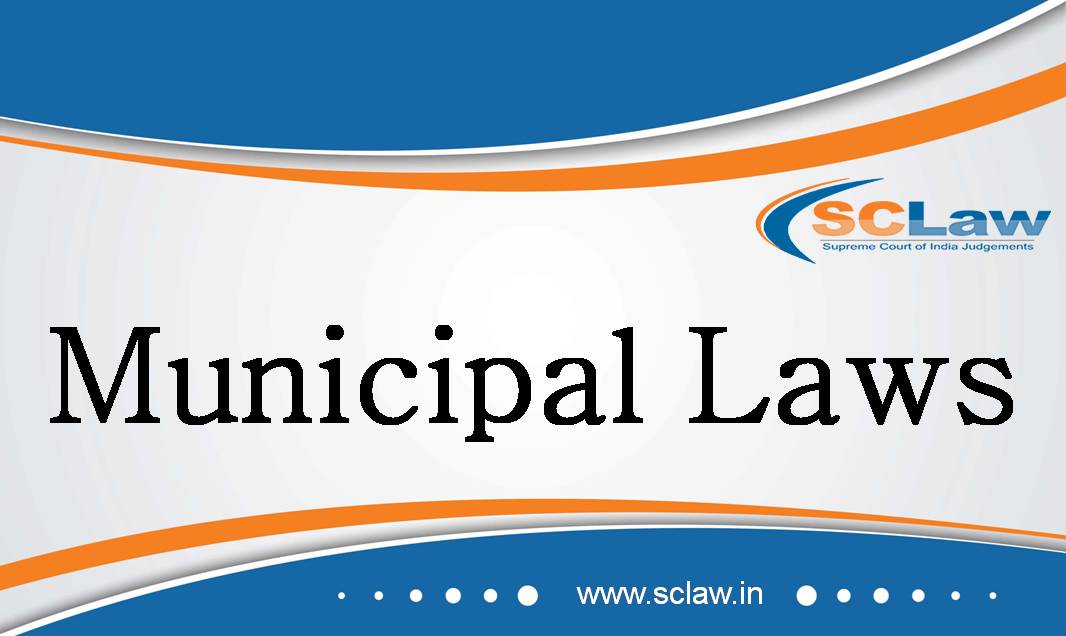Power To Condone Delay Under Sec 5 Limitation Act Applies To Special Or Local Laws If It Is Not Expressly Excluded : SC
The Supreme Court has reiterated that the power to condone delay under Section 5 of the Limitation Act is applicable to proceedings under special or local laws if it is…
Displaced Persons (Compensation & Rehabilitation) Act, 1954 – Section 16 – Displaced Persons (Compensation and Rehabilitation) Rules, 1955 – Rule 34 – Transfer of land – Lack of use of expression ‘package deal’ – Thus, if the Central Government could transfer land forming part of the compensation pool to a corporation, then it could very well transfer land to a State Government.
SUPREME COURT OF INDIA DIVISION BENCH RAMESH PARSRAM MALANI AND OTHERS — Appellant Vs. STATE OF TELANGANA AND OTHERS — Respondent ( Before : L. Nageswara Rao and Hemant Gupta…
West Bengal Premises Tenancy Act, 1997 – Section 7(2) and 7(3) – Limitation Act, 1963 – Section 5 – West Bengal Premises Tenancy Act, 1956 – Section 17(2), 17(2A), 17(2B) – Extension of time to deposit of arrears of rent – Sub sections (2A) and (2B) of Section 17 of 1956 Act confer unfettered power on the court to extend the period of deposit of rent, which is circumscribed by the proviso of sub sections (2) and (3) of Section 7 of the Act.
SUPREME COURT OF INDIA DIVISION BENCH BIJAY KUMAR SINGH AND OTHERS — Appellant Vs. AMIT KUMAR CHAMARIYA AND OTHERS — Respondent ( Before : L. Nageswara Rao and Hemant Gupta…
Mumbai Municipal Corporation Act, 1888 – Sections 139, 140 and 169 – Water Charges Rules – Applicability of – High Court misread the impugned demand notices as being under Section 169 of the Act, when in fact the same were for recovery of property tax in the form of water benefit tax under Section 139 read with Sections 140 and 141 of the Act.
SUPREME COURT OF INDIA DIVISION BENCH MUNICIPAL CORPORATION OF GREATER MUMBAI — Appellant Vs. HARISH LAMBA OF BOMBAY, INDIAN INHABITANT AND OTHERS — Respondent ( Before : A.M. Khanwilkar and…
Indian Stamp Act, 1899 – Section 35 – Refund of stamp duty – Suit for specific performance – Agreement to sell
SUPREME COURT OF INDIA DIVISION BENCH M/S TERAI TEA COMPANY LIMITED — Appellant Vs. KUMKUM MITTAL AND OTHERS — Respondent ( Before : Mohan M. Shananagoudar and Ajay Rastogi, JJ.…
Penal Code, 1860 (IPC) – Sections 326, 452 and 34 – Voluntarily causing grievous hurt by dangerous weapons – Enhancement of sentence – -This Court note that under the crime test, seriousness needs to be ascertained. The seriousness of the crime may be ascertained by (i) bodily integrity of the victim; (ii) loss of material support or amenity; (iii) extent of humiliation; and (iv) privacy breach.
SUPREME COURT OF INDIA FULL BENCH STATE OF MADHYA PRADESH — Appellant Vs. UDHAM AND OTHERS — Respondent ( Before : N.V. Ramana, Mohan M. Shantanagoudar and Ajay Rastogi, JJ.…
Arun Mishra, J’s order, outlining the rejection of the request for his recusal
SUPREME COURT OF INDIA FIVE JUDGES BENCH INDORE DEVELOPMENT AUTHORITY — Appellant Vs. MANOHAR LAL AND OTHERS — Respondent ( Before : Arun Mishra, Indira Banerjee, Vineet Saran, M.R. Shah,…
Arbitration and Conciliation Act, 1996 – Sections 16 and 37 – Arbitration agreement – Counter claim – Jurisdiction-Arbitrator might reject the counter claim for CENVAT invoices as not arbitrable and the counter claim beyond the scope of reference to arbitration – But to reject the counter claim at the threshold on the ground that the Arbitrator has no jurisdiction would not be proper
SUPREME COURT OF INDIA FULL BENCH BHARAT PETROLEUM CORPORATION LIMITED — Appellant Vs. GO AIRLINES (INDIA) LIMITED — Respondent ( Before : R. Banumathi, A.S. Bopanna and Hrishikesh Roy, JJ.…
Delhi Electricity Reforms Act, 2000 and the Electricity Act, 2003. National Green Tribunal Act, 2010 – we are of the opinion that the direction issued by the Tribunal on 11.09.2019 shall be implemented and sewerage charges shall be introduced by the Government of NCT of Delhi as directed by the Tribunal.
SUPREME COURT OF INDIA DIVISION BENCH TATA POWER DELHI DISTRIBUTION LTD. NDPL HOUSE — Appellant Vs. MANOJ MISRA AND OTHERS — Respondent ( Before : L. Nageswara Rao and Hemant…
U.P. Protection of Trees in Rural and Hills Areas Act, 1976.- Forest (Conservation) Act, 1980 -The provisions of the Forest Conservation Act are not applicable to Khasra No.605. We are in agreement with the findings recorded by the Tribunal that the land falling in Khasra No.605 is banjar or barren land and the provisions of the Forest Conservation Act is not applicable.
SUPREME COURT OF INDIA DIVISION BENCH CHANDRA PRAKASH BUDAKOTI — Appellant Vs. UNION OF INDIA AND OTHERS — Respondent ( Before : L. Nageswara Rao and Hemant Gupta, JJ. )…















